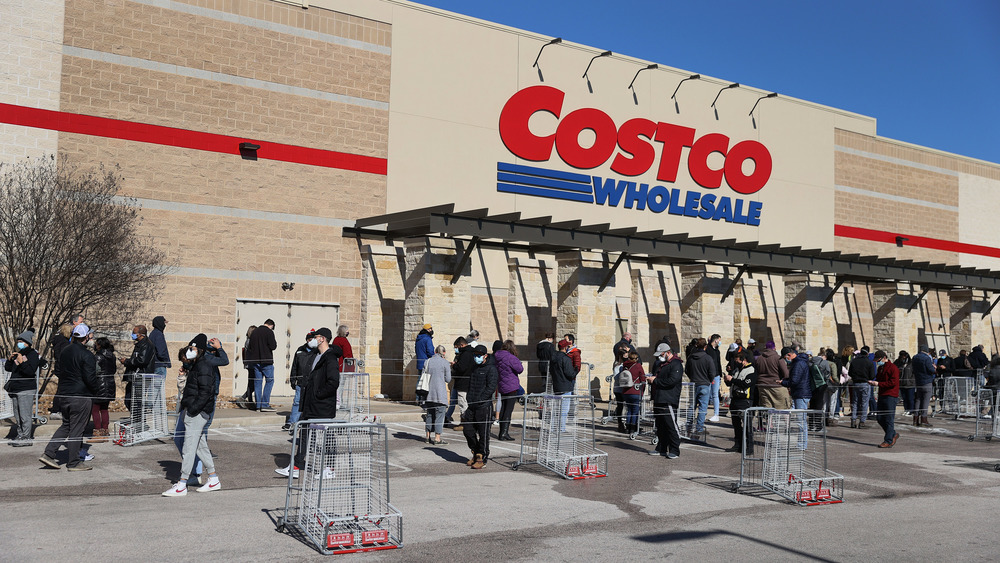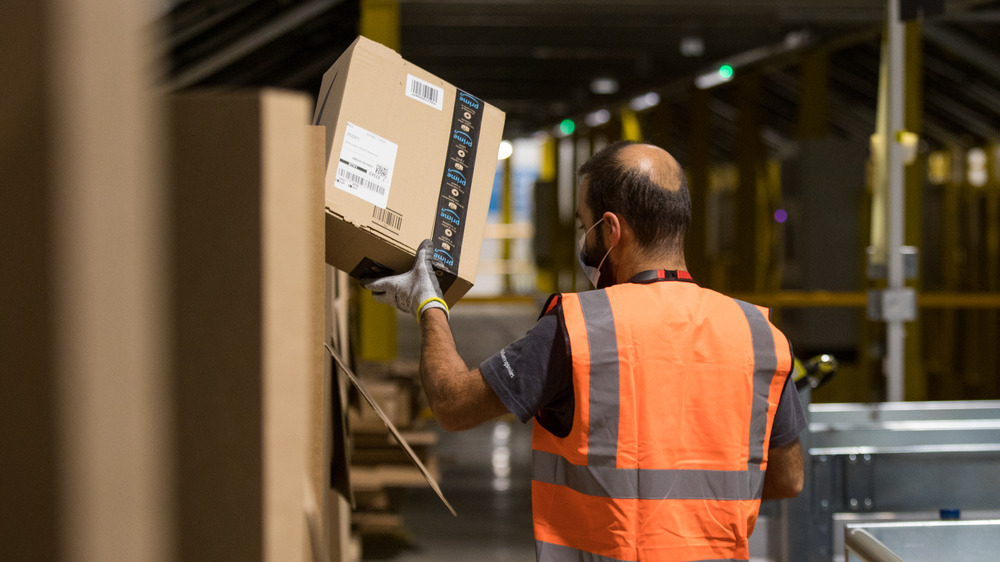Costco Is About To Raise Its Minimum Wage To $16 An Hour
On February 25, W. Craig Jelinek, CEO of Costco, announced during a hearing of the Senate Budget Committee that Costco intended to raise their minimum wage, which already sat at $15, to $16 beginning next week (via NPR).
"I want to note this isn't altruism," Jelinek said, per NPR. "At Costco we know that paying employees good wages ... makes sense for our business and constitutes a significant competitive advantage for us. It helps us in the long run by minimizing turnover and maximizing employee productivity." It is further helped by the fact that most of their 180,000 employees already make more than $25 per hour.
Currently, the federal minimum wage hangs not even halfway at $7.25 per hour. By upping their minimum wage once more, Costco, as CNN reports, has put some pressure on competitors like Amazon and Target who have raised their own minimum wage to $15 in recent years. However, there is pushback from small retailers who complain about the possibility of layoffs or closures due to low revenue that cannot compete with the reserves of companies like Amazon, Target, and Costco.
Costco's higher wages may push other companies to change
Of course, while a strong minimum wage is a necessary component to a good job, the amount it matters diminishes without aspects like benefits and good work. Fortunately, in Costco's case, benefits buttress the increased minimum wage, as Business Insider noted in 2018.
Costco's other benefits included affordable health insurance, a 401k, and free membership. Moreover, another employee told Business Insider that Costco allowed them to transfer stores when they moved between states. For these reasons and the wage on which one can actually live, it is little wonder that employees actively choose to stay with Costco for years.
A negative example for a higher minimum wage is Amazon, specifically their fulfillment centers. In 2019, The Guardian revealed that the relatively high minimum wage of $15 papered over claims of warehouse workers being punished for injuries, the elimination of bonuses, and the ever-increasing demand for productivity. Additionally, Amazon also began hiring more temporary workers, meaning that they could deny them benefits. "Hitting rate got harder and harder to hit so I gave up and quit," one emblematic complaint stated. "My body would hurt 24/7 and I couldn't take it anymore."
So, Amazon may follow Costco's lead in a game of corporate oneupmanship, but without the large-scale improvements to the working conditions of the people making the minimum wage, they could not compete with Costco as an employer.

